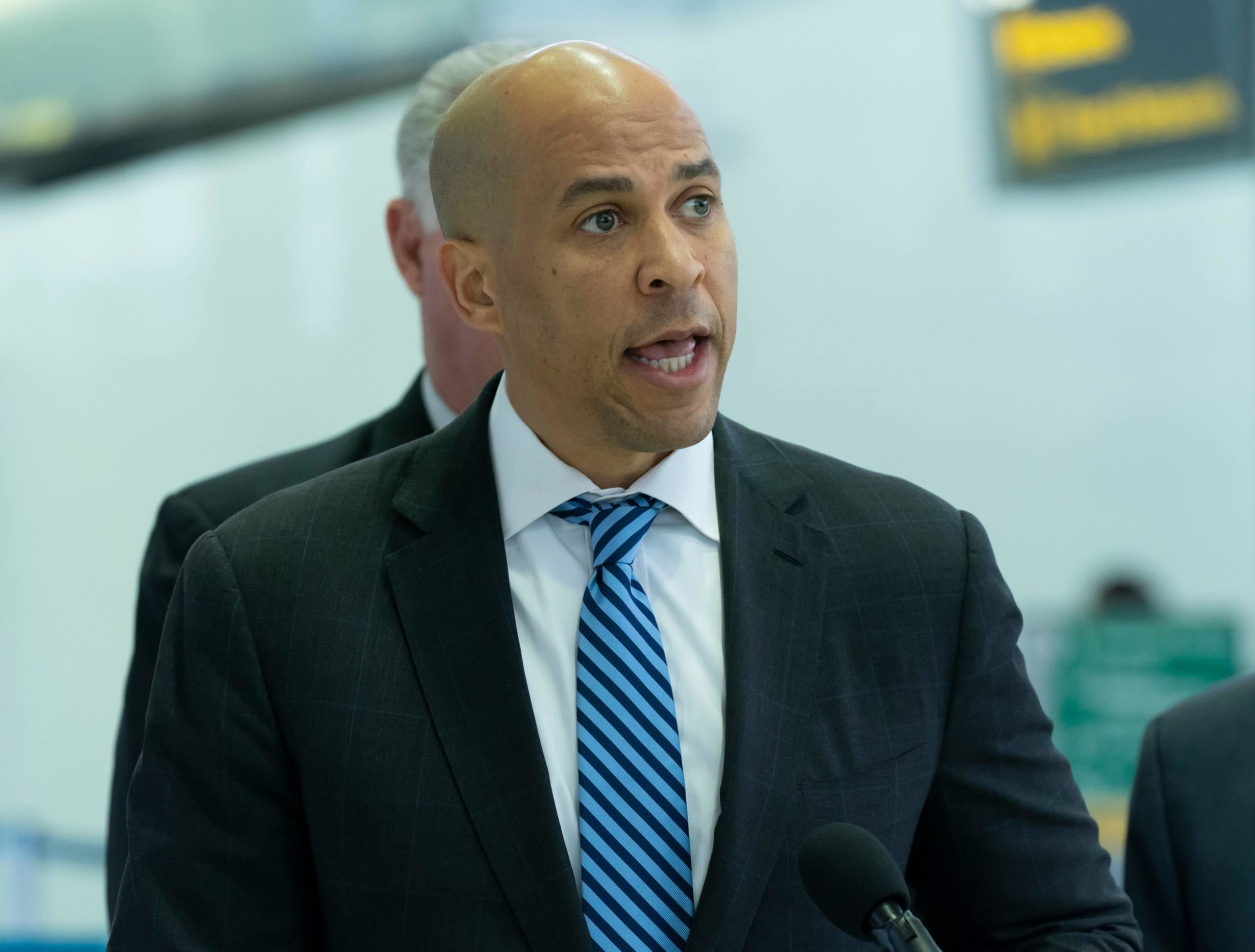
Sen. Cory Booker points out that the Cannabis Administration and Opportunity Act is almost complete
Sen. Cory Booker, Senate Treasury Chairman Ron Wyden, and Senate Majority Leader Chuck Schumer plan to promulgate cannabis legislation to both end federal prohibition of cannabis and help communities hardest hit by the war on drugs affected, possibly by the end of the month.
Sens. Booker, Wyden and Chuck Schumer introduced a discussion draft of the Cannabis Administration and Opportunity Act (CAOA) last July that would decriminalize cannabis at the federal level and allow states to decide whether to legalize it. It would also wipe out nonviolent cannabis crimes, and taxes would be provided to help communities hardest hit by the war on drugs.
Since the release of the draft bill, lawmakers have requested feedback on what should be included and excluded from the final bill. The community has responded. For example, NORML called for civil defenses to be bolstered to clear records, revise outdated testing requirements, and provide a way for small companies to compete with large ones. Others expressed concern about tax rates.
Senate Majority Leader Chuck Schumer announced at a press conference in February that he intended to officially introduce the bill in April. NJ.com reports that the bill is almost written and is expected to drop later in the month. While the media is targeting April 20 as a good symbolic date for an announcement, the Senate is on hiatus until April 22, making a bill introduced the week of April 25 more likely.
“I’m not kidding, but there’s been a lot of talk about doing it on April 20,” Booker told news outlets inside the US Capitol. “I’d like to see it on April 20, but I can’t speak to it given all the stuff that’s sort of supported in the Senate.”
The U.S. House of Representatives passed another sweeping cannabis bill, the Marijuana Opportunity Reinvestment and Expungement (MORE) Act, on April 1, but only three Republicans supported it. Booker needs the support of at least 10 GOP senators if the Senate is to pass any type of legislation, but remains optimistic about finishing the ban the right way.
“This can’t just be about simple legalization,” Booker said. “It has to be about restorative justice. We had a really horrible prohibition streak. This war on drugs was not a war on marijuana. It was a war against the people. This idea that you can suddenly legalize or decriminalize and so many Americans are still suffering the consequences of a criminal conviction if they can’t get a job, a loan from a bank, that’s just unfair. So this is a bill built around these ideas of restorative justice.”
Steven Hawkins is President and CEO of the US Cannabis Council (USCC) and former executive director of the Marijuana Policy Project. Hawkins said we don’t have the full account yet, but a few things stand out. A full list of USCC discussion draft guidance was released last September, but a few immediate issues spring to mind.
“First, the proposed tax, at least in draft form, had a 25% federal tax on top of the currently high state taxes,” Hawkins told the High Times. “It would simply make it impossible for the industry to be successful in most states. So that needs to be addressed. And then there is the question of primary jurisdiction. The draft proposed that the FDA have primary jurisdiction. We certainly have concerns about the FDA’s role. We would rather see the Tax and Trade Bureau have primary jurisdiction.”
The CAOA would also create a regulatory framework for cannabis under the US Food and Drug Administration (FDA) and the Alcohol and Tobacco Tax and Trade Bureau (TTB). The shift would also normalize income tax for legal cannabis businesses, meaning existing businesses would no longer be subject to Section 280E of the Internal Revenue Code. However, some argue that cannabis should be regulated more like alcohol. “The Tax and Trade Bureau is already looking at adult-use products containing alcohol and tobacco,” Hawkins said. “We want this agency to be responsible for cannabis as well.”
Once introduced, the bill will go to the Senate, where it will go through several committees and merge with others. “The bill will, to our knowledge, overlap with at least a dozen committees,” Hawkins said.
The CAO Act (or CAOA) has been characterized as a state rights bill that allows states to vote, and differs from bills such as the Rep. Nancy Mace’s Reform Act, primarily due to the inclusion of items such as provisions on social justice.
“Normally, legislation this comprehensive doesn’t get passed the first time,” Hawkins said. “You have to build support. What we saw with the MORE Act was that some Republicans asked questions: how do we protect children? How do we deal with intoxication? There were a few people who said absolutely not, we should never allow that, but there was nowhere near the majority in terms of comments during the hearing. What we see is the maturity of our movement. There are now competing bills in the House of Representatives with the Nancy Mace bill, the MORE Act, etc.”
While some leaders are concerned about the Senate bill’s chances under the current Congress, others are concerned about the tax implications. Rep. David Joyce opposed the MORE bill and issued an announcement saying it had no chance of passing the Senate while others disagreed.
“The movement toward repeal and legalization of cannabis is growing,” Hawkins said. “We now have competing visions in-house. We’ll see what Republican support shows up in the Senate. It may be – given the partisan nature of the Senate – that the CAO bill will be viewed – rightly or wrongly – as simply a Chuck Schumer bill. But that doesn’t mean that if a Republican bill showed up in the Senate, there wouldn’t be one [more supporters].”

Post a comment: